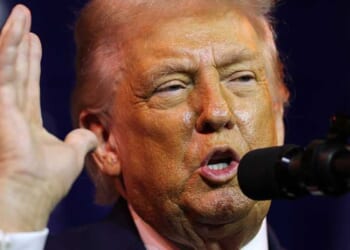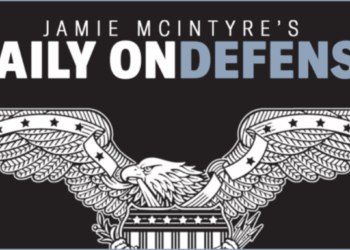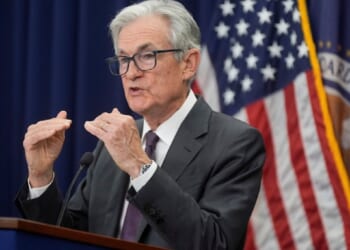When the United States pledges its blood and treasure to defend an ally — like NATO members — it’s a big deal. The Senate must formally ratify treaties, and it’s not a decision to be taken lightly. That’s why it was somewhat surprising late last month when President Donald Trump signed an executive order that pledges our defense to the marginally friendly nation of Qatar.
This Middle Eastern enclave is considered a middleman between terrorists and Western nations, though “middleman” is probably too nice a term. Not only does Qatar play both sides, but it shelters jihadi leaders like Hamas officials. It funnels millions of dollars to Western universities to instill pro-Islamist sentiments in naive students. It’s also the home of Al Jazeera, a pro-Sharia law media outlet that uses all the tools in its possession to influence Western affairs.
On the other hand, Qatar provides intelligence and allows the U.S. to station a major air base there. The Qataris also offered Trump that really nice airplane to serve as the next Air Force One.
Herein lies the crux of the issue: President Trump wants to facilitate peace and end the war in Gaza. But in order to do that, he believes — rightly or wrongly — that the U.S. must be especially cordial to the Qataris. After all, Qatar has some influence over Hamas.
Qatar has been attacked twice in the past four months — first by Iran, then by Israel. Iran attacked because it thinks Qatar is too cozy with the U.S. Israel attacked because it was targeting Hamas’s leadership. Israel terminated five Hamas operatives in that strike, though it also killed a member of the Qatari Internal Security Forces.
As part of Trump’s make-nice-with-Qatar plan, the first step was getting Israel to apologize for the airstrike. When Israeli Prime Minister Benjamin Netanyahu visited the White House in late September, he called Qatari Prime Minister Mohammed bin Abdulrahman Al Thani and expressed regret for the death of the Qatari service member. Netanyahu further assured Al Thani that Israel has no plans to make another such strike in the future.
White House releases picture of Netanyahu reading the apology letter to Qatar PM pic.twitter.com/joYlo0tpHQ
— Amichai Stein (@AmichaiStein1) September 30, 2025
Trump’s executive order was issued the same day as this phone call. The order explicitly states:
Sec. 2. Commitment. (a) The United States shall regard any armed attack on the territory, sovereignty, or critical infrastructure of the State of Qatar as a threat to the peace and security of the United States.
(b) In the event of such an attack, the United States shall take all lawful and appropriate measures — including diplomatic, economic, and, if necessary, military — to defend the interests of the United States and of the State of Qatar and to restore peace and stability.
While one can understand the president’s gesture from a dealmaking perspective, from a foreign policy standpoint, this executive order is a gamble. There are a plethora of enemies who could view it as an invitation to attack Qatar. Terror-funded states in the region of what we have coined Jihadistan may be brave enough to test their mettle and risk an attack on Qatar because of their hatred for the West.
And of course, this sort of agreement without the consent of Congress means it’s non-binding and can be overturned when the next U.S. president takes office. As the editors of National Review point out, “A president of the United States has no unilateral authority to give another country a security guarantee — at least one that the U.S. must honor.”
But there are upsides as well. As far as Iran is concerned, this security guarantee further isolates that nation’s ghoulish regime. The mullahs facilitate much of the major unrest in the Middle East and organize proxies to carry out terrorism. Their influence, though, is beginning to wane, and Qatar’s shift toward cooperating with the U.S. means Iran has one less reliable ally.
Trump is also watching our other geopolitical foes. Communist China, for instance, would love to gain more influence in the Middle East. China’s goal is to disrupt U.S. hegemony, and it continually seeks to expand its partnerships with that objective in mind. Trump is countering that with olive branches for Arab states.
Foreign policy is a complicated game with many moving pieces. On the one hand, President Trump’s agreement with Qatar may seem like folly. At the same time, there is a more complicated chess move being orchestrated here, and time will tell how it all plays out.
In the meantime, let’s hope U.S. military deterrence is enough to persuade bad actors in the region to back off.

















